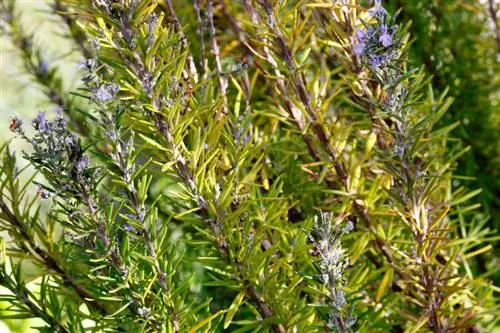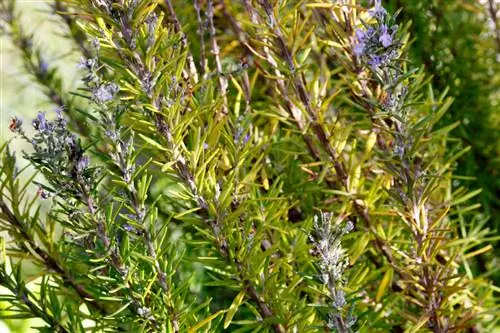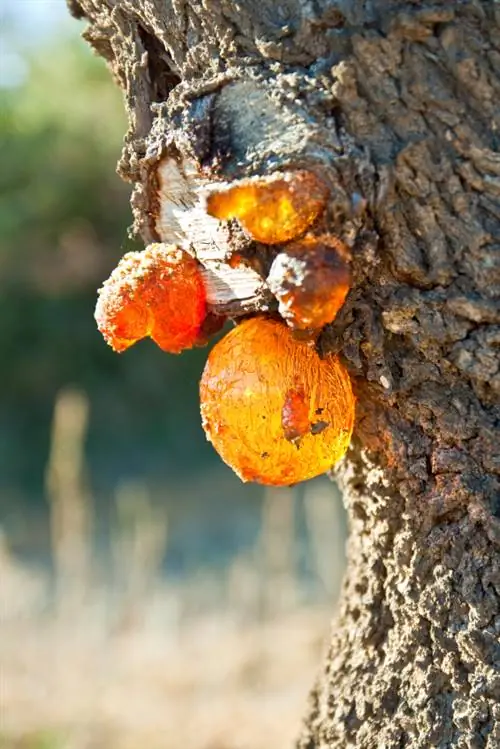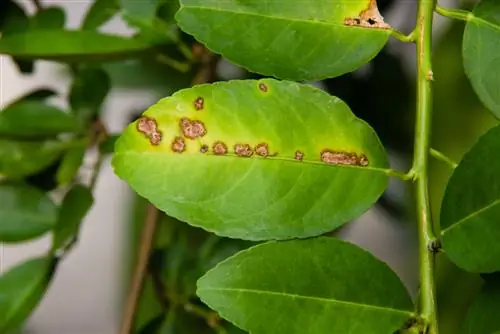- Author admin leonars@hobbygardeners.com.
- Public 2023-12-16 16:46.
- Last modified 2025-01-23 11:20.
The popular culinary herb rosemary is unfortunately quite susceptible to various diseases caused by fungi. These are usually caused by excessive moisture.

What diseases are common with rosemary and how can you prevent them?
The most common rosemary diseases are powdery mildew, gray mold, rust fungi and wilt. To avoid these fungal diseases, ensure good garden hygiene, adequate ventilation, correct plant spacing and remove diseased plant parts immediately.
Garden hygiene is important
Diseases, both in humans and animals as well as in the garden, are kept at bay through good hygiene and care tailored to the plants. Remove possible sources of infection by thoroughly disinfecting pots, planters and other garden tools at the end of each gardening year. Carefully remove any rotting, diseased or dead plant parts and never dispose of them in the compost. These leaves and twigs may contain fungal spores that would reinfect the plants the following spring.
Mildew often occurs on rosemary
Rosemary is often particularly affected by powdery mildew. This plant disease attacks stressed plants, especially those that are too crowded and whose roots are dry. If possible, do not place the plants too close together and ensure that your rosemary always has enough water. Remove affected areas immediately to stop the spread.
Grey horse on rosemary
Gray mold or botrytis is another fungal disease that thrives in cool and moist conditions. It mainly attacks leaves and stems. Poorly ventilated environments, such as the interior of inadequately ventilated greenhouses or shelters, promote these conditions, as does planting too densely. Improve air circulation and establish dry conditions to prevent or stop the problem. Remove all affected plant parts.
Rust fungi promote needle shedding
Rust fungi are a group of fungal diseases that discolor leaves and promote premature leaf drop. The fungi thrive in conditions similar to those of mildew, i.e. in damp and crowded places. Provide good ventilation and plant the rosemary at the correct distance. Clean the affected areas.
Wilt and rot of rosemary
Soil-dwelling organisms can cause wilt. With good plant hygiene and care, wilt, which usually affects particularly weak and generally unhe althy plants, can be avoided. Wilting is particularly dangerous for new rosemary seedlings.
Tips & Tricks
You should not use chemical pesticides such as fungicides to treat a rosemary bush infected with fungi, as you are no longer allowed to process the herb afterwards due to the risk of poisoning. If possible, switch to organic products (€9.00 on Amazon).






